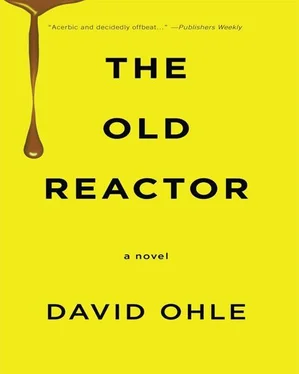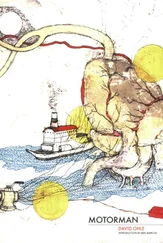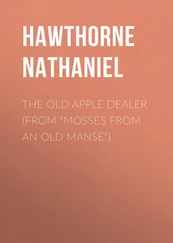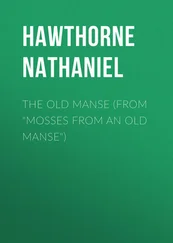David Ohle - The Old Reactor
Здесь есть возможность читать онлайн «David Ohle - The Old Reactor» весь текст электронной книги совершенно бесплатно (целиком полную версию без сокращений). В некоторых случаях можно слушать аудио, скачать через торрент в формате fb2 и присутствует краткое содержание. Год выпуска: 2014, Издательство: Dzanc Books, Жанр: Современная проза, на английском языке. Описание произведения, (предисловие) а так же отзывы посетителей доступны на портале библиотеки ЛибКат.
- Название:The Old Reactor
- Автор:
- Издательство:Dzanc Books
- Жанр:
- Год:2014
- ISBN:нет данных
- Рейтинг книги:4 / 5. Голосов: 1
-
Избранное:Добавить в избранное
- Отзывы:
-
Ваша оценка:
- 80
- 1
- 2
- 3
- 4
- 5
The Old Reactor: краткое содержание, описание и аннотация
Предлагаем к чтению аннотацию, описание, краткое содержание или предисловие (зависит от того, что написал сам автор книги «The Old Reactor»). Если вы не нашли необходимую информацию о книге — напишите в комментариях, мы постараемся отыскать её.
The Old Reactor — читать онлайн бесплатно полную книгу (весь текст) целиком
Ниже представлен текст книги, разбитый по страницам. Система сохранения места последней прочитанной страницы, позволяет с удобством читать онлайн бесплатно книгу «The Old Reactor», без необходимости каждый раз заново искать на чём Вы остановились. Поставьте закладку, и сможете в любой момент перейти на страницу, на которой закончили чтение.
Интервал:
Закладка:
Ernie and Sorrel followed Moldenke out onto the sidewalk and waved goodbye.
Zanzetti Scienterrifics has produced the first “preternatural boy.” He was born in the seventeenth month of fetal development, delivered by a “treated” jellyhead mother andhoused in a basement room of Zanzetti’s Bunkerville laboratory complex, kept comfortable with air coolers and de-humidifying units. Prone to fungal ravages of the epidermis he was otherwise sound and healthy.
The City Moon ’s headline was: FIRST ‘GODBOY’ BORN IN BUNKERVILLE
Zanzetti was quoted as saying, “His brain will be a whopping twelve pounder, if he matures. We’ll harvest it, keep it alive in a saline and sugar solution, and see if we can get it to help us think better.”
“The paper called him ‘Godboy,’” a reporter said. “Are we to draw any conclusions?”
Zanzetti shrugged and looked upward. “Gods have been around since ancient times. We expect this one, like the others, to grow up and change the world for better or worse. I’m a scientist, and I say, eventually, why not now?”
One afternoon Moldenke went to the Saposcat’s on Arden for lunch. He found Udo and Salmonella there. Salmonella ate mud fish, picking them up in her hands and chewing them through, even the softened bones. Udo drank tea, ate nothing, and read the City Moon , which arrived in Altobello with day-old news. A reader had to allow for recent developments, especially if they related to events in Altobello, which had no newspaper.
“Well, yippie,” Salmonella beamed. “It’s Moldenke. Sit with us.”
“Look at this,” Udo said, tapping the paper with his finger. “Some kind of jellyhead show over on the east side tonight. It says Brainerd Franklin’ll make an appearance. Let’s go. Let’s all go.”
Salmonella placed her hand on Moldenke’s knee. “Come on. Come with us. Franklin’s that famous golfer. Daddy won’t shoot him. He’s too famous.”
“It’ll be fun,” Udo said.
“All right, I’ll go along.”
Salmonella clapped her hands. “Yippie!”
Udo folded the paper and swatted a fly on the window sill. “We’ll pick you up in front of the Tunney at half-past seven.”
Moldenke slept the afternoon away in his room, awakened at six by the distant sound of the angelus ringing in the tower of the Church of the Lark. He put on his uniform and boots and combed his hair without a mirror, glad he’d had a chance to sleep, to store some energy for the show.
Udo’s motor pulled up exactly at seven thirty. “Get in. It starts at eight sharp.”
Salmonella, sitting in the passenger seat, slid over to give Moldenke room to sit. “Promise you won’t shoot one, Daddy?”
“Shut up you little twit. Quit hounding me. They don’t feel pain like we do.”
Salmonella brushed back her hair with a quick motion and let her tongue part her lips into a smile. “What about you, Moldenke? Do you know if they feel pain?”
“They lack consciousness, it says in the brochures. They took it out of their own heads and put it into machines. That’s what turned them into jellyheads way back when. So they really don’t feel much of anything.”
Udo placed a hand around the grip of his niner to still the tremor, then rubbed the weapon with an oiled cloth.
Moldenke ate the second bear claw, soggy now and soaked with the fishy oil they were fried in, then lit a Julep. “I’m worried this won’t go well,” he said. “There might be trouble.”
Udo shrugged. “Trouble? No chance of that. So what if I wax a few jellies. People used to kill chickens and fish, didn’t they?”
Moldenke retrieved a long-stored memory of killing a chicken. It had happened when he was visiting his late aunt’s country home, where she kept a dozen free-roaming pullets. One spring day she asked him to go out and kill one and give it to the cook to fry. “He makes the most sublime spring chicken. We’ll have it for supper tonight. You kill it, he’ll pluck it.”
Moldenke went out and snatched the legs of one of the pullets and held it upside down. He took the head in his hand and pulled at it ineffectively, never hard enough to take it off. A pair of garden shears would probably do the job faster and better. He went to the shed, carrying the bird by the feet. The shears hung on a nail in the wall. He closed the door to keep the pullet from escaping and chased it with the shears, finally trapping it in a corner and closing the dull blades across its neck. Rather than shearing off the head cleanly, the neck merely folded flat between the blades, crushing the bones.
“I did kill a chicken once,” he said. “The wrong way. The way I thought was the smartest, and the chicken suffered a slow death. I could taste it in the meat when we ate it for dinner. It was off flavor.”
Udo said, “Enough blather. It’s almost dark. Let’s go see that show.” He set the finder for an address on the east side and the motor rolled toward the bypass.
Only days ago it was learned that near the Old Reactor, a jellyhead village of odd little mushroom-shaped dwellings has sprung up. Some are hemispherical, some barrel-like, some oblong, and at the top of each is a bucket of gel sacks, tending to prove Zanzetti’s theory of interspatial communication between the sacks and distant life.
Should free people take action? “No, not yet,” the scientist said. “Let me break the code, see what they’re talking about. There could be a way to distort the impulses from the sack and get the jellies to behave themselves and work for the general good.”
Zanzetti’s experiments will continue, and periodic reports and memoranda on his progress will be issued until the code is broken. In related research, the great scientist has pioneered a process for partially reviving newly dead jellies and putting them to work. Though he is guarded in any release of specifics, he does say that it involves the use of electromechanical stimulation of the cranial gel sack. All the mechanics and electronics are packed into a small box the size of a deck of cards worn at the back of the neck. The technique has worked on test subjects in the laboratory, Zanzetti says, and he hopes to begin additional trials very soon. “They won’t be like they were in the full bloom of life,” he warns, “but put them in front of a punch press or a milling machine and they’ll work it all day and expect no wage. They’re also non-vocal, so they’ll go about their tasks quietly. And they don’t eat, so they won’t require feeding or toileting facilities.”
Zanzetti proposes to use them in performing menial tasks. “They’ll sweep the floor, they’ll draw your bath, they’ll chop vegetables and wash windows. There’s no limit to the little jobs they can do. At bed time you just remove the box and they’re out like a light, dead to the world. Let them sleep in the garage or the cellar.”
After parking the motor, Udo, Moldenke and Salmonella stood on the stoop of a lap-sided, two-story house that had recently been painted, in contrast to the dilapidated buildings on both sides of it and all through the old neighborhood. There were a few streetlights burning dimly on low current.
Udo rang the bell. They waited in the heat until someone opened the shutters, raised the shade, and parted the curtains of an upstairs window. It was a woman with a slender face and a fair complexion. She blinked in the sun and held a hand over her eyes. Curls of black hair fell in ringlets to her shoulder. She opened the window, smiled down from the folds of the muslin curtains, and pointed at a service alley running along the side of the house. “Are you looking for the jellyhead show?”
“Yes, ma’am,” Udo said.
“There’s ten or twelve of them in my basement, living down there like bats. Here I am with the best kept house as far as I can see in the only decent neighborhood in Altobello, and look what moves in. Now they’re putting on a show.”
Читать дальшеИнтервал:
Закладка:
Похожие книги на «The Old Reactor»
Представляем Вашему вниманию похожие книги на «The Old Reactor» списком для выбора. Мы отобрали схожую по названию и смыслу литературу в надежде предоставить читателям больше вариантов отыскать новые, интересные, ещё непрочитанные произведения.
Обсуждение, отзывы о книге «The Old Reactor» и просто собственные мнения читателей. Оставьте ваши комментарии, напишите, что Вы думаете о произведении, его смысле или главных героях. Укажите что конкретно понравилось, а что нет, и почему Вы так считаете.












